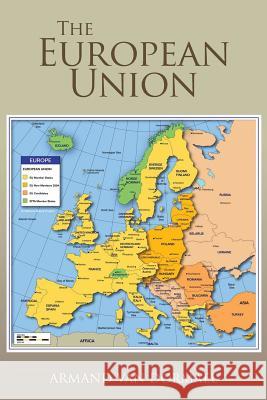The European Union » książka
The European Union
ISBN-13: 9781495927751 / Angielski / Miękka / 2014 / 390 str.
On March 23-24, 2000, at the Lisbon Summit, the EU heads of states and governments drew up a blueprint intended to make the European Union within ten years "the most competitive and dynamic knowledge-based economy in the world, capable of sustained economic growth, with more and better jobs and greater social cohesion." This Summit was to be Europe's great leap forward. They foreshadowed the dawn of a golden age for the European economy. Despite the lack of results to achieve its goals, its proponents reaffirm them time and again, hiding their failure behind a facade of misinformation. The EU establishment takes comfort in the fact that the "silent majority" has no way to make its voice heard. Authoritarian regimes do not have to justify their legitimacy by proving their competence. The European Union functions in a virtual world of make-believe. The introduction of new and massive spending, taxation, regulation and redistribution schemes, on top of national legislation, imposes a heavy burden on the productive sector.. After decades of working less and less for more and more, the European industry has largely priced itself out of the world market, leaving millions of people unemployed, unable - or unwilling - to take a job. In the euro area, according to the latest official figures, the unemployment rate is 12.2 per cent. In Switzerland it is 3.2 percent and in Norway 3.4 percent. Globalization augurs a new age in which emerging market companies are increasingly out-competing European competitors. The 2lst century is still garnering monikers. It may be considered Europe's swan song as a global power. Its relevance on the worldwide scale is eroding. Prior to Europe's uncontestable global dominance being shattered by WWI and the subsequent rise of the US, the region had reached its apogee. In spite of the introduction of the euro and the expansion of the EU's membership to include countries formerly under the Soviet imperialist yoke, and its still considerable economic weight, Europe's status as a pre-eminent global power is shrinking. The European Union failed to adjust to the global transformation that has witnessed the rise of emerging economic and geopolitical powers, as it has also failed to refurbish the transatlantic relationship, which for the entire second half of the 20th century was the bedrock of global governance and of Europe's role and position in the world. Since its beginnings 60 years ago, the European community has constantly stumbled from one crisis to the next. Setbacks are part of its normal mode of operation. A sense of crisis characterizes the European era. Europe isn't a state or a community which grows together organically."
Zawartość książki może nie spełniać oczekiwań – reklamacje nie obejmują treści, która mogła nie być redakcyjnie ani merytorycznie opracowana.











